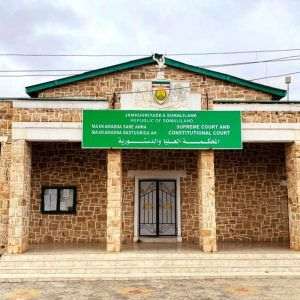• October 2013: The privatization of CFR Marfă - unsuccessful
Initiated in the beginning of this year, following the agreement with the IMF, the privatization of CFR Marfă failed for the second time.
Whereas initially, all of the bidders were disqualified, the Government changed the most important requirements initially set through the strategy, thus making it significantly easier for the investors to succeed.
Immediately resumed and conducted at a breakneck pace, the call for tenders for the sale of 51% of the shares of CFR Marfă was won, in June, by Grup Feroviar Român (GFR), part of the Grampet Group, owned by businessman Gruia Stoica.
The law concerning the adoption of some contractual clauses has prevented however, the completion of the process.
The government decision stipulated, on one hand, that the privatization would have to be completed within 60 days, and on the other hand it stipulated that the process would be concluded the moment several conditions were met, including the approval of the deal by the Competition Council (CC).
Under these circumstances, the state has asked GFR to pay the entire amount by October 13th (when the 60 days delay expired), and Gruia Stoica said that he could not pay the money before the seller, i.e. the Ministry of Transports, had fulfilled its contractual obligations.
Gruia Stoica said, at the end of last week, that GFR had the entire amount needed to acquire CFR Marfă: "We are prepared to pay, but we are waiting to see whether the seller has fulfilled his obligations (ed. note: obtaining the license from the Competition Council, obtaining the agreement from the foreign and domestic underwriters on the change of the share capital structure, and the completion of the process to convert the debts into shares)".
The businessman still has 170 million Euros to pay. The previous 30 million Euros was paid into two tranches: 10 million Euros - as the guarantee for participating in the privatization - and 20 million Euros - in an escrow account opened with Banca Transilvania.
Prime Minister Victor Ponta maintains that the Executive has fulfilled all of his obligations from the contract for the privatization of CFR Marfă, and said that, even though he is not familiar with all the details, he doesn't know what else the government is expected to do in this particular deal, because the issuing of the authorization by the Competition Council does not depend on the government.
The Competition watchdog has announced that legally, it would take a maximum of five months for it to issue an opinion on whether the acquisition of CFR Marfă by GFR would lead to the creation of an economic concentration.
Since back in summer, when it approved the Draft Government Decision concerning the privatization of CFR Marfă, the Competition Council has warned the Government that the text of the law can create a confusion concerning the payment deadline, Bogdan Chiriţoiu, the president of the Competition Council said at the end of last week.
Talks were held between the representatives of GFR and those of the Ministry of Transports, on Friday, as well as yesterday, but the two parties failed to reach an agreement concerning the completion of the process for the privatization of CFR Marfă.
Gruia Stoica asked for the desecretization of the contract his company signed with the Government, and he emphasized that the contract does not stipulate anywhere that the privatization should be done in 60 days.
The Ministry of Transports (MT) recently expressed its intention to extend that delay, but didn't, as that plan was not approved by the Ministry of Justice, according to our sources.
Under these circumstances, Minister of Transports Ramona Mănescu announced last week, that the deadline for the payment of the entire amount would remain October 14th. Gruia Stoica said at the end of last week that he would go to court to get his money back, and said that the manner in which the privatization of CFR Marfă has concluded is "typically Romanian".
• October 2012: the government announces the failure of the privatization of Oltchim
One year ago, the same steps, the same finale - the state "flunked" again, failing to sell the chemical plant Oltchim Râmnicu Vâlcea.
In October last year, the privatization of Oltchim failed, after TV owner and showman Dan Diaconescu had been designated as the winner of the call for bids.
The plant was sold for a price of 45 million Euros.
The night the failure of that privatization was announced, PM Victor Ponta was saying that Dan Diaconescu had promised to pay the 45 million Euros on the day of the signing of the contract and that he had pledged to present a business plan in 48 hours, but that he failed to keep those promises.
On the other hand, the journalist said that the delay for the negotiation of the contract had not expired at the moment the failure of the privatization had been announced, and he maintained until the last minute that he did have the money to pay for the deal.
Dan Diaconescu has sued the Romanian government as well, and some market players think that he is probably going to win that lawsuit.
Known in Romania for his involvement in the restitution of the Romanian Treasury, confiscated by the Russians, Eugen Anca considers that Dan Diaconescu was not required to sign the contract ten days after the adjudication of the call for bids, but only after having met the suspensive requirements, namely, after the authorization of the operation by the Competition Council.
At the time, Mr. Anca told us: "The tender book clearly states that the payment for the majority stake was supposed to be made on the date of the pre-finalization of the contract, and that date occurs upon the expiration of the maximum delay of ten working days from the date the suspensive conditions have been met. Even though the tender book did not stipulate the obligation to present the money, Dan Diaconescu showed proof that he had the required money, even within the 10 days required by the Ponta government. Besides, just two days before the holding of the call for tenders, Mr. Ponta publicly said that in the case of Oltchim it would take 2-3 months before the money for the shares was paid. With that being the case, how does Mr. Ponta explain the fact that Mr. Dan Diaconescu was asked to pay up in ten days, which was against the obligations stipulated in the tender book? Moreover, the tender book stipulates the right of the buyer to pay the shares within 15 more days, after the deadline stipulated in the contract, subject to a certain delay penalty, of course. So with that being the case, how did Mr. Ponta decide to invalidate Dan Diaconescu as the winner of the call for tenders before the expiration of the legal deadline?"
The Government has made a commitment to privatize Oltchim through the memorandum concluded with the IMF, and pledged to have the plant go into voluntary liquidation, with the company going into receivership.
Oltchim Râmnicu Vâlcea is currently in insolvency in order to undergo restructuring. According to the opinion of the receivers, the plant's chance to get rescued would be the sale of some of its assets, with their debts cancelled.
• March 2012: The government fails the sale of Cupru Min
About six prior to the failure of the privatization of Oltchim, the Government had failed in its attempt to sell the copper mines of Roşia Poieni.
Approved by the Government since back in 2006, the privatization of Cupru Min was pledged by the Executive in its letter of intent of the stand-by agreement with the IMF.
In March last year, following a call for bids, Roman Copper Corp. Canada was designated the winner, and was supposed to pay 200.77 million Euros. The starting price of the call for tenders had been set at 57.36 million Euros.
The call for tenders was subsequently invalidated, as the two parties failed to reach an agreement on the terms of the contract.
Canadian company Roman Copper, which had been especially created for acquiring Cupru Min, was registered in Toronto and is owned by magnate Stephen Roman, the heir of Stephen B. Roman, one of the notable companies of the Canadian mining industry. In the 80s, Stephen Roman intermediated, together with his father, the acquisition of the first CANDU nuclear reactor by the Ceauşescu regime.
Currently, the Canadian company has a pending lawsuit against the Romanian government. Roman Copper is asking for the return of the collateral it paid last year for participating in the privatization call for tenders.
Cupru Min owns the exploitation of Roşia Poieni, which contains 60% of Romania's copper reserves. The company's copper reserves amount to approximately 900,000 tons (worth approximately 7 billion dollars).
The Ministry of the Economy recently decided to conclude a joint-venture at Cupru Min Roşia Poieni, for a seven year period. Last week, Swiss company Trafigura and the Turks of Yaldirim Group filed the preliminary bids for that joint-venture, according to some sources from the management of the company.
The binding offers and the participation documents in the sealed-envelope call for tenders must be submitted by October 14th.
Sources close to the deal told us that the privatization commission called the representatives of GFR yesterday at the headquarters of the Ministry of Transports to tell them that "it is impossible to call them in to complete the deal because the suspensive conditions have not been met". This means that the payment can not be done either, the quoted sources also told us.
In other words, on one hand, the Romanian state, which was supposed to obtain the agreement of the domestic and foreign financers for the sale of CFR Marfă and to complete the conversion of the debts into equity, has not honored its contractual obligations.
On the other hand, the officials told us on several occasions that the privatization would be cancelled because the investor did not pay the entire amount by October 14th, as all the obligations, those of GFR as well as those of the Ministry of Transports, were supposed to be met cumulatively.
If we draw a line and make the calculations so far, we can note that Gruia Stoica lost 30 million Euros to the state.
But, if it comes to a lawsuit and the courts decide that the Government shares some of the blame in the failure of CFR Marfă, the state may have to pay damages far exceeding the 30 million Euros which it has collected, for the time being, from the attempted privatization of our railroad freight operator.



















































